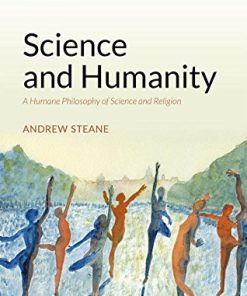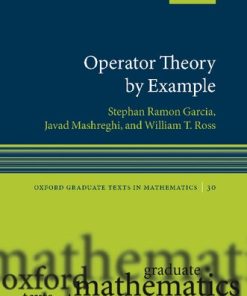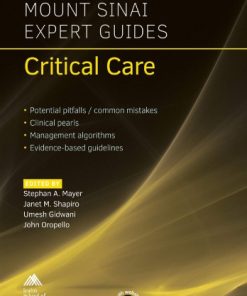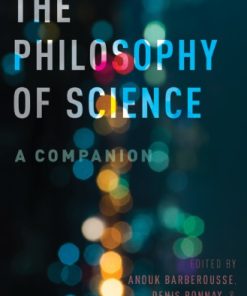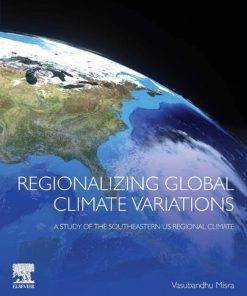(EBook PDF) Bayesian Philosophy of Science Variations on a Theme by the Reverend Thomas Bayes 1st Edition by Jan Sprenger, Stephan Hartmann 0191652229 9780191652226 full chapters
$50.00 Original price was: $50.00.$25.00Current price is: $25.00.
Bayesian Philosophy of Science: Variations on a Theme by the Reverend Thomas Bayes 1st Edition by Jan Sprenger, Stephan Hartmann – Ebook PDF Instant Download/DeliveryISBN: 0191652229, 9780191652226
Full download Bayesian Philosophy of Science: Variations on a Theme by the Reverend Thomas Bayes 1st Edition after payment
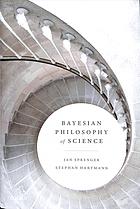
Product details:
ISBN-10 : 0191652229
ISBN-13 : 9780191652226
Author: Jan Sprenger, Stephan Hartmann
How should we reason in science? Jan Sprenger and Stephan Hartmann offer a refreshing take on classical topics in philosophy of science, using a single key concept to explain and to elucidate manifold aspects of scientific reasoning. They present good arguments and good inferences as being characterized by their effect on our rational degrees of belief. Refuting the view that there is no place for subjective attitudes in ‘objective science’, Sprenger and Hartmann explain the value of convincing evidence in terms of a cycle of variations on the theme of representing rational degrees of belief by means of subjective probabilities (and changing them by Bayesian conditionalization). In doing so, they integrate Bayesian inference–the leading theory of rationality in social science–with the practice of 21st century science. Bayesian Philosophy of Science thereby shows how modeling such attitudes improves our understanding of causes, explanations, confirming evidence, and scientific models in general. It combines a scientifically minded and mathematically sophisticated approach with conceptual analysis and attention to methodological problems of modern science, especially in statistical inference, and is therefore a valuable resource for philosophers and scientific practitioners.
Bayesian Philosophy of Science: Variations on a Theme by the Reverend Thomas Bayes 1st Table of contents:
Variation 1: Confirmation and Induction
1.1 Motivating Bayesian Confirmation Theory
1.2 Confirmation as Firmness
1.3 Confirmation as Increase in Firmness and the Paradoxes of Confirmation
1.4 The Plurality of Bayesian Confirmation Measures
1.5 Discussion
Appendix: Proofs of the Theorems
Variation 2: The No Alternatives Argument
2.1 Modeling the No Alternatives Argument
2.2 Results
2.3 Discussion
Appendix: Proofs of the Theorems
Variation 3: Scientific Realism and the No Miracles Argument
3.1 The Bayesian No Miracles Argument
3.2 Extending the No Miracles Argument to Stable Scientific Theories
3.3 The Frequency-Based No Miracles Argument
3.4 Discussion
Appendix: Proofs of the Theorems
Variation 4: Learning Conditional Evidence
4.1 Divergence Minimization and Bayesian Conditionalization
4.2 Three Challenges for Minimizing Divergence
4.3 Meeting the Challenges
4.3.1 The Medicine Example
4.3.2 The Astronomy Example
4.3.3 The Economics Example
4.4 Learning Relative Frequencies: The Case of Judy Benjamin
4.5 Discussion
Appendix: Proofs of the Theorems
Variation 5: The Problem of Old Evidence
5.1 The Dynamic Problem of Old Evidence: The Garber–Jeffrey–Niiniluoto Approach
5.2 The Dynamic Problem of Old Evidence: Alternative Explanations
5.3 The Static Problem of Old Evidence: A Counterfactual Perspective
5.4 The Hybrid Problem of Old Evidence: Learning Explanatory Relationships
5.5 Discussion
Appendix: Proofs of the Theorems
Variation 6: Causal Strength
6.1 Interventions and Causal Bayesian Networks
6.2 Probabilistic Measures of Causal Strength
6.2.1 Argument 1: Separability and Difference Measures
6.2.2 Argument 2: The Multiplicativity Principle
6.2.3 Argument 3: Dilution and the Ratio Measures
6.2.4 Application: Quantifying Causal Effect in Medicine
6.3 Causal Contribution and Actual Causal Strength
6.4 Conclusion
Appendix: Proofs of the Theorems
Variation 7: Explanatory Power
7.1 Causal Theories of Explanatory Power
7.2 Statistical Relevance and Explanatory Power
7.3 Representation Theorems for Measures of Explanatory Power
7.4 Comparison of the Measures
7.5 Discussion
Appendix: Proofs of the Theorems
Variation 8: Intertheoretic Reduction
8.1 The Generalized Nagel–Schaffner Model
8.2 Reduction and Confirmation
8.2.1 Before the Reduction
8.2.2 After the Reduction
8.3 Why Accept a Purported Reduction?
8.4 Discussion
Appendix: Proofs of the Theorems
Variation 9: Hypothesis Tests and Corroboration
9.1 Confirmation versus Corroboration
9.2 Popper on Degree of Corroboration
9.3 The Impossibility Results
9.4 A New Explication of Corroboration
9.5 Discussion
Appendix: Proofs of the Theorems
Variation 10: Simplicity and Model Selection
10.1 Simplicity in Model Selection
10.2 The Akaike Information Criterion
10.3 The Bayesian Information Criterion
10.4 The Minimum Message Length Principle
10.5 The Deviance Information Criterion
10.6 Discussion
Appendix: Sketch of the Derivation of the Akaike Information Criterion
Variation 11: Scientific Objectivity
11.1 The Objections
11.2 Convergence Theorems and Bayes Factors
11.3 Frequentism and Scientific Objectivity
11.4 Beyond Concordant, Value-Free and Procedural Objectivity
11.5 Interactive and Convergent Objectivity
11.6 Discussion
Variation 12: Models, Idealizations and Objective Chance
12.1 The Equality and Chance–Credence Coordination
12.2 The Suppositional Analysis
12.3 Suppositional Prior Probabilities and the Trilemma Resolution
12.4 Bayes’ Theorem Revisited
12.5 Conclusion
People also search for Bayesian Philosophy of Science: Variations on a Theme by the Reverend Thomas Bayes 1st:
theory vs philosophy
bayesian philosophy
bayesian statistics philosophy
bayes philosophy
bayesian physics
Tags:
Bayesian Philosophy,Science,Variations,a Theme,the Reverend,Thomas Bayes,Jan Sprenger,Stephan Hartmann
You may also like…
Religion & Spirituality - Spirituality
Science and Humanity: A Humane Philosophy of Science and Religion 1st Edition Andrew Steane
History - European History
Politics & Philosophy - General & Miscellaneous Philosophy
The Historiography of Philosophy: With a Postface by Jonathan Barnes Michael Frede
Mathematics - Operator Theory
Politics & Philosophy - Anthropology
Science (General)
Regionalizing Global Climate Variations: A Study of the Southeastern US Regional Climate 1st Edition



